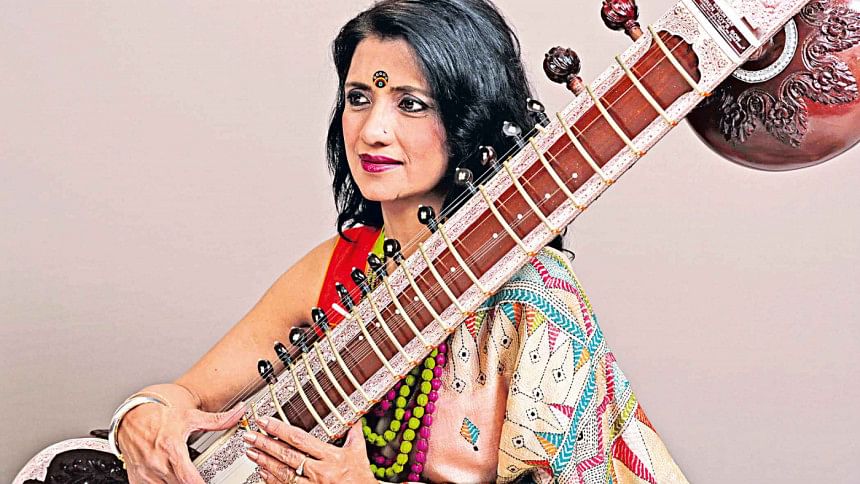In Tune To The World


Rafi Hossain: Welcome to Uncensored with Rafi Hossain. Today, we are here with classical music artist Alif Laila. Thank you for being with us here today.
Alif Laila: Thank you for having me.
Rafi Hossain: I feel that artists do not pursue instrumental music as much as other forms. Do you agree with me?
Alif Laila: There isn't anything to not agree with. In the past century, it was rare to see women of any religious background perform music in public settings. There were dance performances in temples as a form of prayer and vocal performances as a form of entertainment. Instrumental performances had no place in it. Women performing music publicly meant sacrifice; in fact, any occupation for women meant sacrifice if they had families. Even now, the society that we live in is male-dominated, even if women are liberated much more than in the past. In the case of instruments, we need to be attuned to it twenty-four hours a day. It has to be in every breath and step we take. It is very difficult for a woman to do this as she has to compartmentalise her life. This means that she cannot give her everything to music. For me, my career was delayed because I concentrated most on my family. In this occupation, we have to deal with a number of difficulties and unwarranted comments from people about how it isn't worth it. However, I believe that it is worth much more than what's on the surface. I was lucky to have received a lot of support from my family in this matter. I graduated from Charukola Institute while having a small child. I don't think it would have been possible for me to follow my passion had my family not supported me. In fact, I don't think any woman who has a family to take care of can follow their passions without proper support. My mother was my biggest inspiration. She wanted to be a Sitar player, but was unable to do so. She was my mentor and my best friend. Our bond was much stronger than that of a mother and a daughter. Another reason behind the disinclination to play musical instruments is the physical aspect of it. Playing the Sitar means having cuts, bruises and callouses on your fingers. Not everyone can be okay with this, and it's understandable. Moreover, carrying the instrument is a very difficult task as it is both heavy and fragile.
Rafi Hossain: Can you tell us something about your musical journey?
Alif Laila: I am very fortunate to have been able to learn from many great artists. In 1981, I was in the Middle-East where I used to practise my art as an amateur. I came to America in 1988 and had to face a lot of struggles of life. Here, I could work with Partha Chatterjee. I also got to learn from Pandit Krishna Bhatt and Barun Roy in Kolkata. Kolkata is the hub of classical music, and I love that place. The environment is perfect for someone who wants to be at one with music. Although things are changing because of improvements in technology and anyone can learn anything from anywhere, I still believe that there is something special about Kolkata that gives its music the authentic flavour. Anyone can learn to play instruments through Youtube, but the subtle nuances and the soul of the instrument and music can only be learned from Gurus. I hope that this does not die off in the future. It is our duty as artists to sustain this practice for the future generation of artists. In fact, we all have the responsibility to perpetuate the practice of instrumental music. We have to take this to the mainstream. I also had the opportunity to talk with Ravi Shankar. He was an incredible knowledgeable and talented artist. The fact that I'm an established artist today can be credited to him because he revolutionised the path for instrumental music today. He inspired me greatly.
Rafi Hossain: Do you have a parting message for the readers?
Alif Laila: Thank you so much for giving me this opportunity. Music is a universal language and energy of peace and love. It has no borders. We must unite with music as a weapon to overcome any adversity that comes our way. I urge everyone to understand each other and concentrate on their happiness. We should all reflect deeply on ourselves and find what makes us happy and follow that with courage. Music is priceless and healing, and I hope we can use it as such.

 For all latest news, follow The Daily Star's Google News channel.
For all latest news, follow The Daily Star's Google News channel. 



Comments